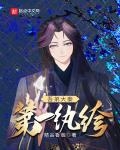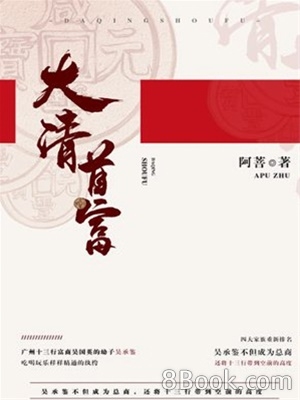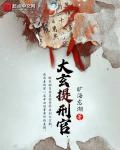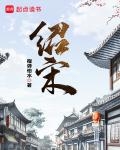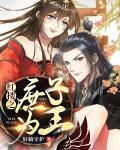Chapter 396: Huguang Chishui (V)
Master Cheng Fu looked up at the window of the cell and saw that it was daybreak. He stood up and shouted to the guard outside: "It's daybreak! It's time to take me out!"
When the nephew in the same cell heard this, he rushed over and grabbed Master Cheng Fu's sleeve, "Uncle, don't!"
Cheng Fu looked at the other people in the cell. Some of them were awakened with bewilderment, while those who were not awakened continued to sleep like dead pigs. Master Cheng shook off his nephew's hand and shouted, "One day earlier, one day later, the one who deserves to die will die. Is it useful to be afraid?"
As the two were arguing, the guard came over and shouted unhappily, "Are you asking to be shot? Our Majesty has made it clear that if you want to be shot, you should first give a reason that can be heard. If I want to fulfill your reputation, you must be useful!"
Cheng Fu sneered, "You look down on others. I just couldn't stand you traitors being so arrogant before. Now I don't want to watch anymore! Let's kill you!"
The next day, Cheng Fu and his nephew were sent on board with two other guerrillas. They all carried wooden chains, and the large iron chains around their waists were connected to the iron chains around their feet with another iron chain.
Of course, the prisoners had no need for good accommodation, so they had to endure the rumbling sound of the steam engine in the room next to the engine room.
After being tortured in such an environment for four days, the four dizzy and swollen prisoners were brought out. What they saw were buildings that were completely different from those in Huguang area, and the people who came and went were dressed differently from those in Huguang area. The accents were also very different.
The escort shouted, "We have arrived in Xuzhou, hurry up and leave."
Although the four Hunan cousins still had a buzzing sound in their ears, they could understand what he said. Cheng Fu shouted, "What nonsense are you talking about? It takes four days to get from Hankou to Xuzhou. Are you flying?"
The escort was stunned for a moment, but he was not angry. He laughed sarcastically and said, "Haha, you are an ignorant Hunan country bumpkin."
The escort officer next to him quickly corrected him, "You ignorant Hunan scholar. Don't you know how far our boat can sail in a day?"
After that, regardless of the reaction of the four people who were humiliated, they were dragged away. After that, they were given a bath, a meal, and a rest. There was actually a lot of meat in the food, and there was also wine. Although the taste of the wine was not suitable for Hunan taste, it surprised the four people.
What was even more surprising was that the water they were given was all boiled water, although the taste of the water was indescribable and unpalatable. But at least it was hot water.
At this time, the guard was replaced. This guy with a northern accent said to them: "You have walked thousands of miles, so you must have some discomfort. Diarrhea is common. If you feel uncomfortable, tell me."
Although they were prisoners, at least they were treated like scholars. The Hunan guerrillas felt a little better. Although they had diarrhea as the guards said, they were relieved quickly after eating a dish of boiled eggs with soy sauce.
After three days of repair, the four changed into their old clothes. The clean clothes exuded a strange smell, and the holes were mended.
The clothes of several people were long gowns worn in the countryside, but they were sewn with patches made by Jiangning General Fu Qingming before they were arrested. These patches were not made of fine silk, and it was even more out of place to sew them on the gowns. Cheng Fu gritted his teeth and shouted, "At least we are officials appointed by the court, aren't we more respectable than Huo Chong who donated his office? Wear them and go to see him!"
The four people were interrogated several times within two days and were finally taken to a room. The old man in the Chinese military uniform sat in the main seat in the middle of the room. There were some people sitting next to him, most of them were also in military uniforms. Cheng Fu looked at the old man's gray hair and beard, and he was indeed an old man.
The old man had a square face and big eyes, and he looked like a northerner. However, he had smooth skin, very few wrinkles, and they were very fine. If you didn't look closely, you wouldn't be able to tell. He was tall and looked very strong. He looked like he was in his early thirties.
"Your Majesty, bring them here," said the guard.
Among the four, Cheng Fu did clamor to see the emperor of the Chinese court, Huo Chong. However, none of the four actually took it seriously, and unexpectedly he was brought. They looked at each other, not knowing how to respond.
"Sit down." Emperor Huo Chong ordered.
Someone immediately led the four people to sit on the benches nearby. The four looked at Huo Chong for a while and felt that Huo Chong was handsome and had an extraordinary demeanor. However, compared with the legendary emperor or the extremely fierce bandit, he was completely different.
At this time, Huo Chong said: "Why don't you introduce yourself. I am Huo Chong, what are your names?"
Cheng Fu suddenly had an impulse. If he rushed forward and killed Huo Chong, all the troubles would be gone. At least he could save a life.
Just as he was thinking this, a hand pressed on his shoulder. Cheng Fu was startled, and then he remembered that there was a guard standing behind him. And there were so many guards in the room that Cheng Fu had no chance of succeeding.
Memories also came to mind. The person who talked with Cheng Fu in Hubei was a young man. He looked about 20 years old and very young. After the young man told Cheng Fu that he was allowed to meet the Chinese Emperor Huo Chong, he said calmly: "If you have any sneak attacks, you will definitely die. And as a disciple of His Majesty, I promise you that your nine clans and your teachers and friends will all die. His Majesty is my mentor. When I say this, you understand that I am not joking, right?"
Although young, Huo Chong's apprentice named Yu has a frightening sense of oppression. Cheng Fu knows that this boy named Yu is definitely not joking.
At first, Cheng Fu thought that death didn't matter, but now he was a little scared. Once the possibility of killing all nine clans was so real in front of him, Cheng Fu felt his heart as cold as if it had fallen into an ice cave.
At this time, Cheng Fu's other three companions introduced themselves one after another. "I am Zhang Xun from Liuyang." "I am He Peng from Changsha." "I am Cheng Zishu from Changsha."
Cheng Fu pursed his lips and wanted to speak, but suddenly found it difficult. He took some effort to make a sound, "I am Cheng Fu."
"Some people say that you made some sense. But you want me to release all the captives. You said that you have something to tell me. How about this, why don't you tell me why you are so brave. It is said that..." Huaxia Emperor Huo Chong said here, looking at the book on the table in front of him, "Mr. Cheng Fu said that the Eight Banners are not scholars. Isn't this an interesting statement? According to the system of the Qing Dynasty, the Eight Banners accounted for half of the Jinshi. Although they are indeed not as educated as you, it is a bit too much to say that they are not scholars?"
When Cheng Fu heard his name being called, he wanted to stand up and speak. Two big hands immediately pressed on his shoulders, preventing him from getting up. Cheng Fu could only sit still and said as loudly as he could: "That's exactly what I said. Even if you have studied, what does it have to do with being a scholar?"
With a chuckle, someone laughed. Cheng Fu looked over and saw a short man with dark skin. He had a southern face and looked like someone from Guangdong or Guangxi.
Cheng Fu's mind was already working quickly, and he asked the man, "Could it be that the one who is laughing is Gao Zhuangyuan?"
Gao Pang was stunned, "Have you seen me?"
"The people of Guangdong and Guangxi can understand this. Only the number one scholar can do this."
Gao Pang did not answer, but just thought about what Cheng Fu said. This was very kind, and Gao Pang had the same feeling back then. The bannermen who acted recklessly in China were originally slaves of the Qing emperor, but a group of slaves from other families were above scholars like Gao Pang. Of course, Gao Pang was not convinced.
It is not normal for a scholar to have a lower status than a slave! It is even more unacceptable!
Just as Gao Pang was thinking about himself, he heard Cheng Fu excitedly continue to say: "Mr. Huo, having read books does not mean being a scholar. If you compare it this way, there are many people in the Eight Banners who have read books, and the eunuchs of the previous dynasty have also read books. Can they be considered scholars?"
Gao Pang was stunned when he heard this, and couldn't help wanting to laugh. For the sake of dignity, he could only cover his mouth. But the anger rushed up and choked Gao Pang, and he kept coughing.
Cheng Fu laughed when he saw Huo Chong, "Mr. Cheng really has read books."
Cheng Fu was a little surprised. He wanted to show off in front of Huo Chong, but Huo Chong's expression seemed to prove that he really understood. Cheng Fu couldn't believe it, so he asked, "Has Mr. Huo heard about the eunuchs of the former Ming Dynasty?"
Huo Chong did not comment, but the others in the room looked puzzled. Someone asked, "Your Majesty, do eunuchs of the former Ming Dynasty need to study?"
Huo Chong nodded and briefly told the story of the early Ming Dynasty. The earliest was Zhu Yuanzhang, the first emperor of the Ming Dynasty. In order to allow eunuchs to organize the palace books, they were allowed to learn to read, but were strictly forbidden to interfere in politics.
Ming Chengzu Zhu Di inherited this measure and hired temporary teachers for the eunuchs to teach them how to read.
During the Xuande period, eunuchs' education had become a stable system. There was a special school called Neishutang, which was staffed with officials from the Hanlin Academy as teachers.
At this time, in order to fight against the literati of the Ming Dynasty, the emperor trained the educated eunuchs into a large secretariat.
The most famous ones are the Silijian and the Imperial Stables.
The main duties of the Silijian include reviewing memorials and announcing imperial decrees.
"Drafting imperial edicts is one of the duties of the Imperial Household Department. Also, in Journey to the West, when the Monkey King arrived in heaven, where did he work?"
After Huo Chong asked the question, Cheng Fu was stunned. He was also a book lover and had read Journey to the West. However, after Huo Chong's words, Cheng Fu suddenly understood.
When I read Journey to the West before, I thought that after Sun Wukong went to heaven, he was sent to raise horses. Although it was a good job, it was not respectful enough. Now my thoughts are on the same page, and I suddenly understand.
Gao Pang also read Journey to the West in his spare time, and only finished the first volume. At this time, he replied: "Isn't it in the Imperial Stables?"
"Haha, Journey to the West is a book from the Ming Dynasty. In the Ming Dynasty, the Imperial Horse Administration was second only to the Imperial Household Department. The duties of the Imperial Horse Administration had nothing to do with raising horses. Their job was to manage the imperial military tokens."
Gao Pang felt enlightened after hearing what Huo Chong said. After the Monkey King made a big fuss in the lower world, the Jade Emperor allowed Sun Wukong to keep the title of Monkey King after he arrived in the Heavenly Palace. The person who deserves this title cannot be a horse breeder, but the person who holds the power of the Heavenly Realm Military Amulet deserves this title.
The other people in the room also understood the whole story at this time. While sighing, Cheng Fu saw many people looking at him with mocking eyes.
Cheng Fu was a little discouraged . In the legend of Hunan, Huo Chong was just a skilled craftsman. He followed the footsteps of the Fourteenth Master and got a government job through donation. Since he was an official through donation, he just knew how to read.
Unexpectedly, Huo Chong knew everything from history books to Journey to the West. He was even able to figure out the threads, which proved that Huo Chong not only read books, but also had the ability to read books.
Seeing that Cheng Fu's momentum was dampened, Zhang Xun, who was from Liuyang, took over the conversation and talked about what Hunanese people think of as scholars.
Cheng Fu deeply agreed with Zhang Xun's speech. Just as he was about to add a few words, Huo Chong said rudely: "If what Mr. Zhang said is the idea of Hunan scholars, I think Hunan scholars think that scholars have the right to speak and the right to interpret. The people who have the final say in various places, as long as they are gentry, are scholars. You don't have to care about things you don't want to care about. But if you do care about things, you have to have the right to decide on their morality and theory. Is this what Mr. Zhang meant?"
Cheng Fu was very unhappy and thought Huo Chong was too sarcastic. But after a while, Cheng Fu felt that although Huo Chong's words were all colloquial, they were not wrong.
What is a scholar? A scholar is someone who has inherited the teachings of the saints and has used the saints' teachings to gain moral power. Both are indispensable.
Although the Eight Banners and the eunuchs of the Ming Dynasty held great power, they were all slaves and lackeys of the emperor. Although lackeys were fierce, they also bullied others by taking advantage of their power. In contrast, it was natural for scholars to hold power. No, as Huo Chong said, only those who hold power can be considered scholars. Apart from the words of the saints, the spirit of scholars is not really constrained by any other force.
Gao Pang also understood. What these Hunan scholars expected was a Hunan ruled by scholars. Anyone who prevented scholars from taking power was an enemy of scholars.
Looking back, Gao Pang has discovered the difference between himself and these people. That is, Gao Pang also believes that there is true morality in the world, but he does not think that he has the power by right. Even so, Gao Pang was considered arrogant by his teacher and was almost expelled from the school.
...No wonder teachers and others all look disdainful when they mention scholars from Hunan.
Cheng Fu looked at the expressions of the people around him and felt that something was wrong. The people around him had their own concerns, but they said nothing. It was obvious that they did not agree with the ideas of the Hunan scholars that Cheng Fu described.
The reason why Cheng Fu did not choose a dignified death was that he did not want to die, but more importantly, he wanted to do more. He wanted to stand up again, but was immediately pressed down on the stool by a strong hand. Cheng Fu hurriedly said, "Your Majesty, someone said before that if we tell the truth, it will satisfy Your Majesty. Your Majesty can let go of all the captured students. I wonder if Your Majesty is satisfied with what I said."
After saying this, Cheng Fu felt uneasy. The reason why these people who hold great power cannot be considered scholars is because they want to use their power to make things difficult for others. For example, Huo Chong in front of him looked indifferent. Based on what Cheng Fu had seen in his life, he would say something difficult.
"Did you all tell the truth just now?" Cheng Fu heard Huo Chong's question.
After a moment of hesitation, Cheng Fu just felt angry and shouted: "I am not afraid of death, why are you telling lies!"
After Cheng Fu finished speaking, two other scholars of the same generation shouted, "We are speaking from the heart!"
"Since you are speaking from the heart, I am satisfied with your answer. You can go back now. We will also release those who were captured."
Cheng Fu was surprised to hear Huo Chong speak so frankly. This was different from what he thought. Although what he had said to the scholars before was true, Cheng Fu and others had made preparations to deal with all kinds of difficulties and even verbal abuse and torture.
I didn't expect that I would be released just because I told the truth. This... this is not a good thing no matter how you look at it.
"Mr. Huo, how are you going to deal with us? Are you going to rob us on the road?" Cheng Fu could only stop Huo Chong with words.
"Bullshit!" A curse with a Jiangnan accent came from the side.
Cheng Fu turned his head and saw a young man standing up next to him. He cursed in the Mandarin with a Jiangsu and Zhejiang accent: "Who do you think you are? Do you think you can fight against the Huaxia Dynasty? The Huaxia Dynasty has always been willing to give people a result. When you return to Hunan, you will definitely fight with the Huaxia Army again. If you are caught, you will be paraded through the streets and beheaded in the street. This is fair and aboveboard, and it will give you a clear end. Assassination, you are worthy?!"
Being scolded like this, Cheng Fu felt blood rushing to his face. Was he just such a character in the eyes of the Chinese court? Then the blood flowed from his face to his heart, making Cheng Fu feel cold in his heart.
This is what happens when bandits rule the country. They may be willing to listen to a few words of reason, but in the end they still resort to violence to resolve the problem.
The Hunan scholars have exhausted their strength in forming an army to fight against the Huaxia army. Even if they are released, it is impossible to form a stronger militia. Especially since too many brothers have sacrificed their lives for the inheritance of the saints. This loss is too great. It cannot be made up in the short term.
But if the Huaxia army invades Hunan, everyone will have to fight again. It is not Cheng Fu's intention to cause great suffering to the people in his hometown.
Seeing that the people who scolded him were from Jiangsu and Zhejiang, Cheng Fu immediately said to Huo Chong: "Mr. Huo, can you please not march into Hunan?"
"Haha." Huo Chong laughed out loud.
Cheng Fu knew that he could not influence Huo Chong's decision with his empty words. He made up his mind and said loudly: "Mr. Huo, Hunan is indeed rich and can be used as the foundation of your ambitions. However, most of Mr. Huo's subordinates are from Jiangsu and Zhejiang . Isn't this courting your own destruction?"
The one who just scolded Cheng Fu was Luo Yiren, and after hearing this, he wanted to scold him again. In his anger, he couldn't help but feel a little curious. The guy in front of him was just a traditional Hunan scholar. In the eyes of Jiangsu and Zhejiang scholars, Hunanese were just literati who wanted to become local leaders. But he didn't know how to do it, so he could only do it stupidly.
Can such a stupid scholar from Hunan say something about the problems in Jiangsu and Zhejiang?
At this moment, Cheng Fu seized this fleeting gap and began to tell the story.
"The literati and gentry in Jiangsu and Zhejiang know how to form cliques and factions, but they take a feminine approach! Shaoxing lawyers seem to serve their masters, but in fact they are all connected and communicate information. Nothing in the officialdom can be hidden from them, and they are particularly good at flattery. Mr. Huo, I heard that you are from Shandong. Shandong people are honest but straightforward. Let me ask you, Mr. Huo, you started your career in Shandong, why are there so few Shandong people in the court?"
"Bullshit!" Hu Yue, a Shandong native, could not help cursing. But despite the curse, Hu Yue felt a little guilty.
What the damn Hunan guy said was actually not without reason. In the ten years since the Huaxia Army revolted, the number of Jiangsu and Zhejiang people who were not valued in the Huaxia Army has increased dramatically. On the contrary, the number of Shandong brothers with straightforward temperament has decreased.
...Is there really a problem?
Cheng Fu also risked his life at this time, and continued to shout: "Mr. Huo, there are still few people from Jiangsu and Zhejiang in your army at this time, so naturally you don't know how powerful they are. Don't you see that as long as the officials are recognized by the Jiangsu and Zhejiang nobles, they will be well evaluated in Jiangsu and Zhejiang. As long as the officials are not recognized by the Jiangsu and Zhejiang nobles, they will use all kinds of soft and hard methods to make the officials have no achievements even though they are not in trouble. They will even embarrass themselves in various details. This is the trick of the Jiangsu and Zhejiang people, and they have been doing this for hundreds of years. If officials want to be promoted, they must have achievements. As long as this point is grasped, the Jiangsu and Zhejiang gentry will cooperate with the officials they choose. They look harmless, but in fact, those officials have received benefits from them, and some handles have fallen into their hands. They don't need to rebel directly, nor do they force it. They just hurt people with a soft knife. Officials can't do without them, and they have to rely on them. This back and forth, when the Jiangsu and Zhejiang people want to do something, they have already set up the situation for decades. Now Mr. Huo's time is still short, and they can't get in. But Mr. Huo is such an upright person, he will definitely fall into their poison!"
These words were shouted out so fiercely that all the civil and military officials of the Chinese court changed their expressions when they heard them.
Huo Chong originally felt that he had obtained what he wanted. The Hunan scholars gained local control by maintaining their prestige among the Hunan people.
Unexpectedly, he suddenly heard about the methods of the Jiangsu and Zhejiang nobles. Huo Chong understood these methods and even learned them at some high-level exchange meetings.
However, P2P is still young, and the financial backers behind it are not people with a deep foundation. However, some people represented by Xbao are said to provide various services to certain neighborhood committees as a whole. They simply spare no expense.
If these have really been operating for hundreds of years...that's really scary!
At this time, even Huo Chong couldn't laugh anymore.

